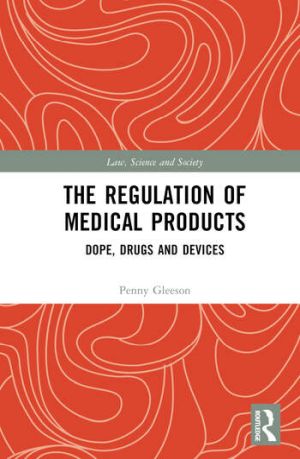We will be closed from 5pm Thursday 17th April for the Easter Bank Holidays, re-opening at 8.30am on Tuesday 22nd April. Any orders placed during this period will be processed when we re-open.

This book develops a theoretical framework for examining and assessing the regulatory arrangements for medical products.
Since the first half of the 20th century, the regulation of pharmaceuticals, medical devices and, more recently, biologicals have been controlled in many jurisdictions by specific regulatory regimes and agencies. Their regulatory mandates are similar - to ensure the quality, safety and efficacy of medical products. This book provides a timely and relevant assessment of the complexities of medical regulatory regimes, by drawing on a particular theory of political legitimacy. In this respect, the book adopts a ‘dialogic’ approach – according to which a shared set of normative beliefs and values are formulated – as a theoretical ‘tool’ to identify deficiencies in the regulatory arrangements for medical products. Drawing on several Australian cases studies, characterised by divergent normative perspectives, the book develops its dialogic approach in order to challenge the usual legitimation of regulatory regimes from the perspective of science alone. Specifically, it maintains that such regimes need to embrace a normative pluralism that admits a diversity of types and sources of knowledge.
This evaluation of the increasingly influential domain of medical regulation will appeal to a range of scholars and practitioners working in law, public health, politics and science and technology studies.